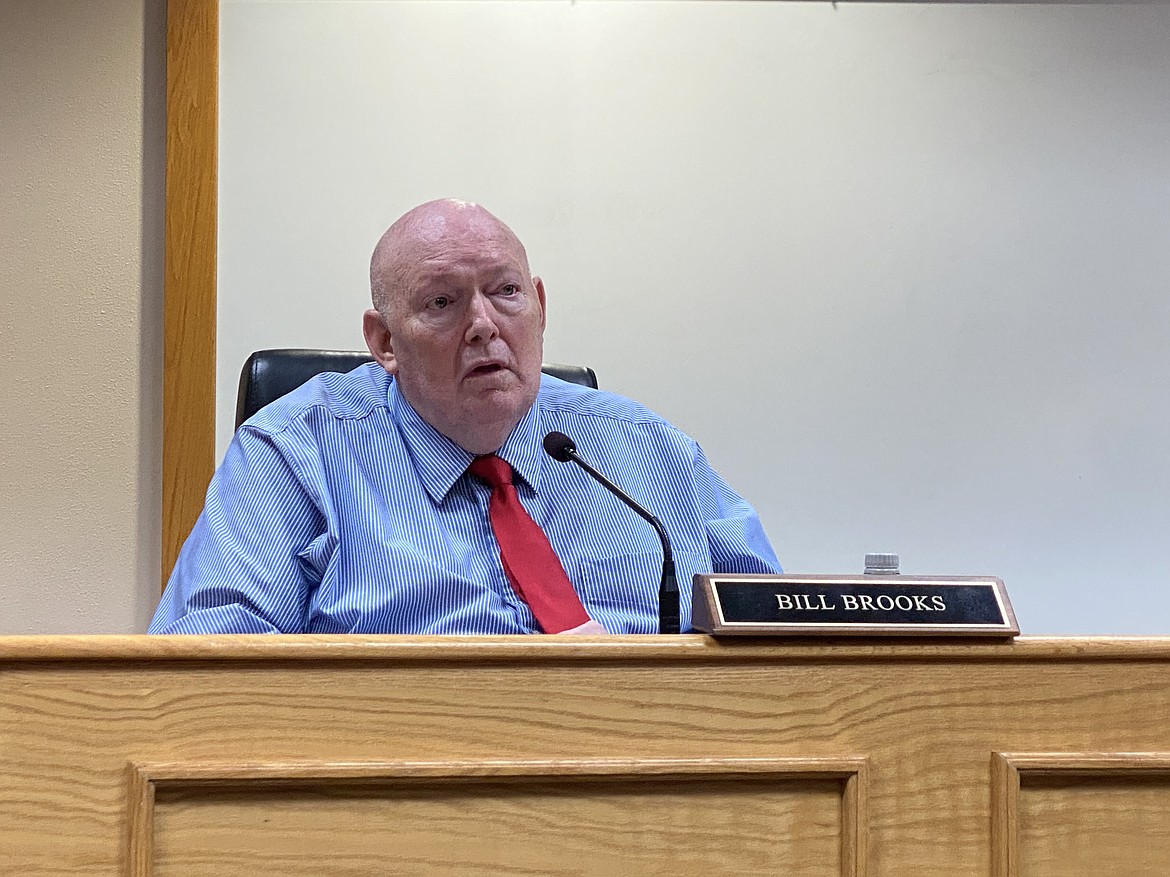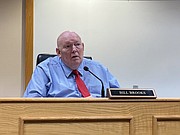Is it time for a change?
COEUR d'ALENE — A new commission that would study alternative forms of county government structure is under fire as dozens of angry residents protested what they called Kootenai County's "governmental swamp" during Monday's commissioners meeting.
Pioneered by Commissioner Bill Brooks, the commission would be tasked with investigating the possibility of changing the present government structure with the other five permitted under Idaho Code 31-5001.
"A lot of people are just plain afraid of new ideas. Some will attack any new idea out of ignorance or self-interest," Brooks said. "Open honest debate of ideas is the hallmark of good government, any attempt to stifle or prohibit debate must be seen as the true tyranny."
Styles of government permitted under Idaho Code 31-5001 are:
• The commission-executive: governance by an elected board of county commissioners, an elected executive and other officers
• The commission-manager: governance by an elected board of county commissioners, a board-appointed manager and other officers
• The three-member board of county commissioners: present method
• The five-member board of county commissioners: two added commissioners to present method
• The seven-member board of county commissioners: four added commissioners to present method
• Consolidation of one or more offices among two or more counties, with all other offices remaining unchanged
This kind of study is not new to Kootenai County.
Previously brought forward in 2012 and the late 1990s, the idea of changing the county elected official process has failed by the hand of the voters twice. Brooks attributes the opposition to poor education of the alternatives and that when "people don't know what they're voting on, they tend to stay with what they know."
Brooks said he believes a major responsibility as commissioner is to attempt to improve the county's conditions by introducing new ideas.
The commission of nine appointed individuals would conduct the study over a period of six months, interviewing stakeholders, holding public hearings and town halls, and field questions from residents.
Some in Monday's crowd were concerned that members of the commission — who have not yet been appointed — would not accurately reflect Kootenai County's wants. The commissioners assured the public that the board would decide those individuals in an open meeting.
If the commission recommended a change, several months dedicated to educating the public on the decision would occur before being placed on a ballot. If no change is recommended, the commission would conclude, and the county would take no further action.
Commissioner Leslie Duncan said she was worried that the commission's bylaws were geared to studying one form of governance — the commission-manager — over the other alternatives.
"I just don't think that it's a good idea to change this form into having unelected positions where they are not going to be accountable to the people they're going to be accountable to one individual," Duncan said. "I believe that no matter what is put on the ballot, I believe it will fail because, in this day and age of all times, I believe that people want to elect direct representatives."
Many compared the idea of having appointed officials with the Panhandle Health District Board of Health and discontent with allowing non-elected individuals to make powerful decisions.
"You're absolutely correct in that the commissioner form of county government is a terrible form of government. The only advantage that it has is all the others are worse," said Brent Regan, chairman of the Kootenai County Republican Central Committee. "I don't think that the citizens of Kootenai County would be interested at all in a swamp of a county administrator and all the imperium that implies."
Others expressed fear in making important county leaders like the sheriff or clerk appointed positions rather than elected. Charity Myser said making the clerk an appointed position by the commissioners would compromise its bipartisan nature, she said.
"I don't know how we would find any faith or integrity in our elections in any structure that had someone who is running the elections in the county who was not wholly accountable to the people," Myser said.
Commissioners agreed to review the document before returning with concerns in a public meeting next week.



